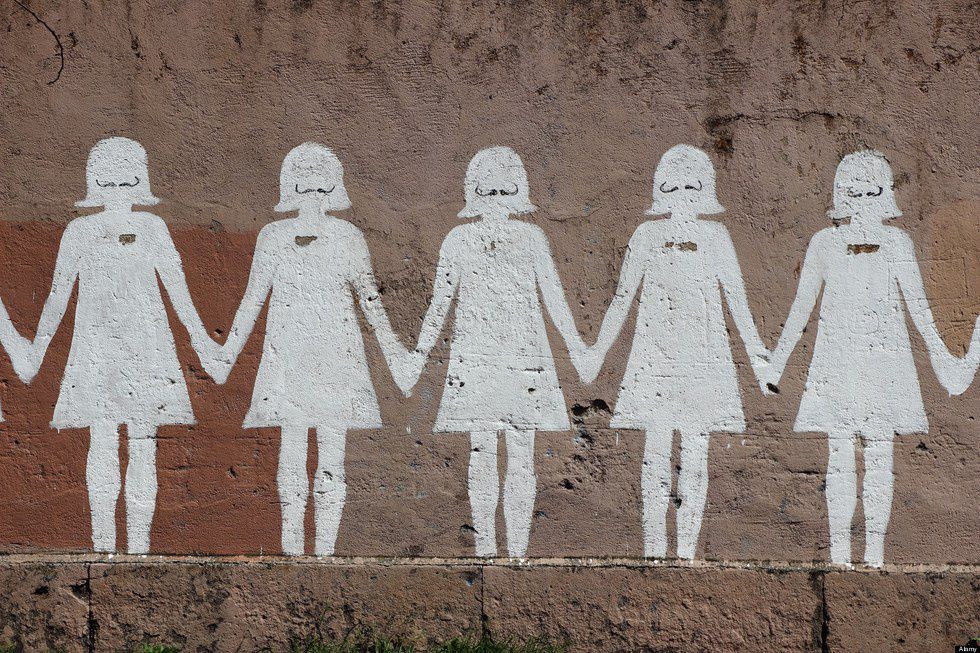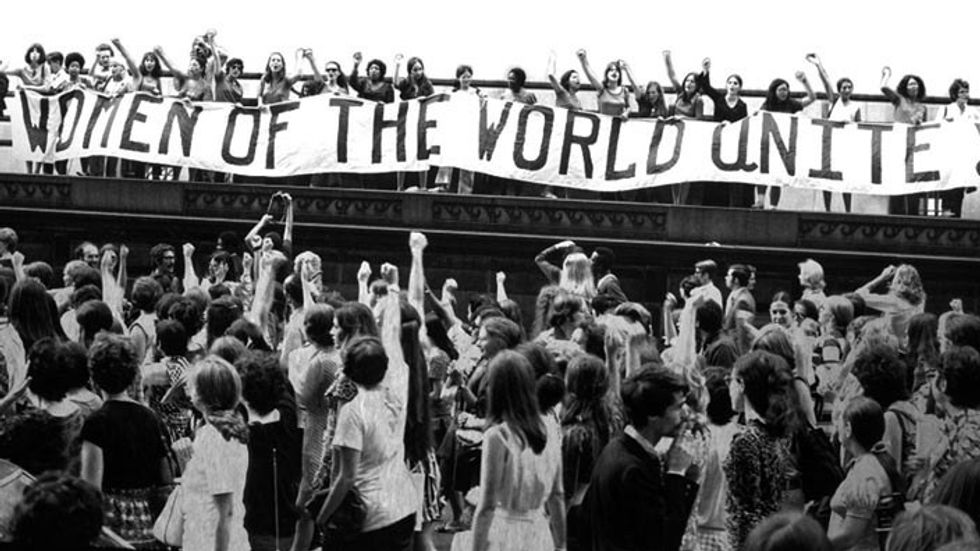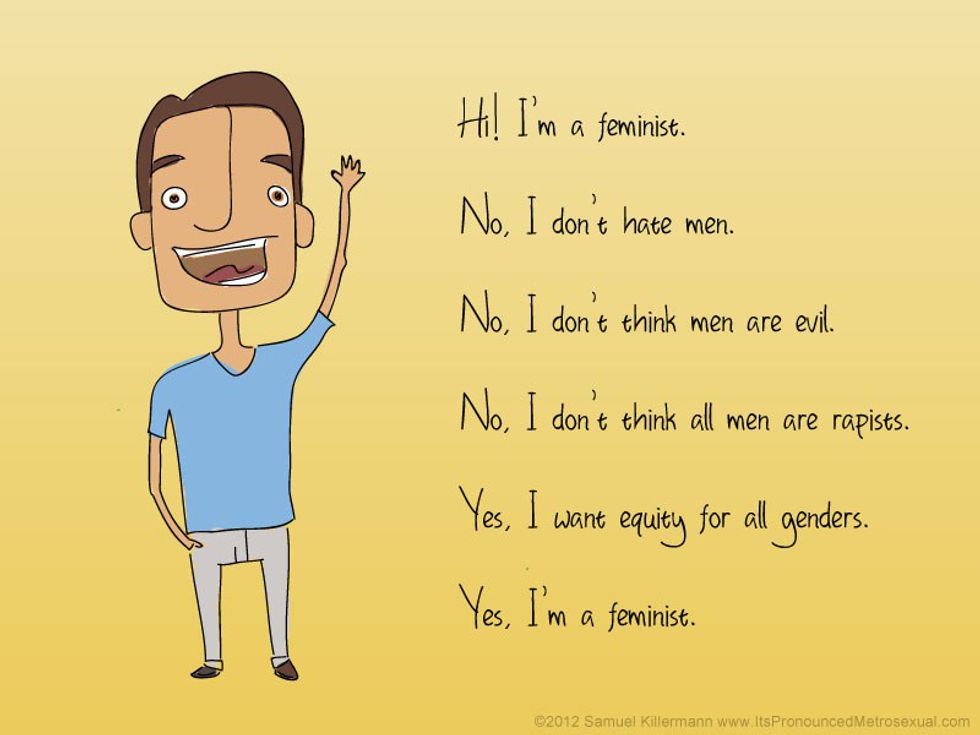Feminism is defined as “the belief that men and women should have equal rights and opportunities.” Unfortunately, the movement seems to get a far worse reputation than the simplistic belief in equality that its name entails. Feminism is a movement to empower all genders, as people are encouraged to fight against any sort of social constraints that prevent them from being who they are. But ultimately, it’s so much more than that. Feminism has changed my perspective on life to make me more open-minded, more accepting of other people’s lifestyles and more conscious of who I am and who I can be. Here are some of the few life lessons I’ve learned through striving for gender equality.
1. It’s not just about you.
There are people that claim that they don’t need feminism because “they’re not oppressed.” To them I say, “Congratulations, but that doesn’t mean other people don’t need feminism.” Approximately one in five women will experience attempted or completed rape in her lifetime, with the same ratio of men experiencing a form of sexual violence other than rape in their lifetimes. Feminism is about making sure that people know the victim is never to blame for an assault, regardless of their gender. In Saudi Arabia, women still can’t drive a motor vehicle. So even if you can’t see the need for feminism in your own country, there’s no reason not to subscribe to the theory so as to support the women that can’t. And as important as you and your life are, you have to step back and look at the big picture sometimes.
2. You’re going to cry, and that’s okay.
Crying now has a negative connotation in our society, and not because it makes people empathize with others that are feeling upset. Unfortunately, crying is seen as a sign of weakness, and is more often than not subconsciously tied with being feminine. This especially affects men, for whom crying can sometimes turn them into a pariah. Feminism works to allow anyone of any gender to cry, because emotional expression is never something to be ashamed of, so long as you’re not hurting anybody in the process.
3. Be comfortable in your own body.
Women’s bodies are censored more than men’s in film and television, and the word “period” is something of a taboo. I see a problem there. Now, I’m not telling you to go out and show your entire body off to the world, as privacy is still an important thing (as is clothing), but I’m saying that you shouldn’t treat “tampon” like a swear word and boobs like the work of the devil himself. These are natural things, and making them unnatural only serves to further stigmatize women.
4. Be supportive of all girls.

5. It’s not about tearing down men; it’s about bringing other genders up.
This is where feminism gets its bad reputation. Some people see it as a man-hating movement, when in reality that idea gets into the territory of misandry, which is counterproductive to the ideas of equality that so many level-headed feminists strive for every day. Feminism does not strive to take away from men. Closing the wage gap doesn’t mean cutting men’s wages; it means raising women’s. Making someone equal to you socially only means raising them up to you, not knocking you down.
6. You don’t have the right to prohibit people from making certain choices.
Yes, this is targeted mainly at the abortion debate, but really, it can be applicable to other situations. See, while I understand the moral gray area of abortion, the reason I firmly stand on the pro-choice side of things is that I could never give myself the right to tell a woman that she can’t make what she feels to be the best decision for herself because I don’t agree with it. This also goes for someone's outfit, dating partner and so many more. I can disagree, but I can’t decide.
7. Don’t be afraid to be feminine.
As I’ve said before, the word “feminine” has an unnecessarily negative term. Through becoming a feminist, I’ve learned to embrace more of a feminine side that I didn’t enjoy when I was younger. While I may not enjoy wearing dresses or makeup or the like, I know that if I ever did wear them, it wouldn’t be the end of the world. Expressing emotion and trying to dress nicely aren’t bad things; they’re stereotypically feminine things. And even if you don’t agree with stereotyping, there’s no reason to drag down the actions themselves.
Becoming a feminist has been an eye-opening experience for me. It made me realize that suffrage wasn’t the end of inequality, and that while we’ve made incredible strides since then for equality of all genders, there’s still some work to do, work we have to do together.
























